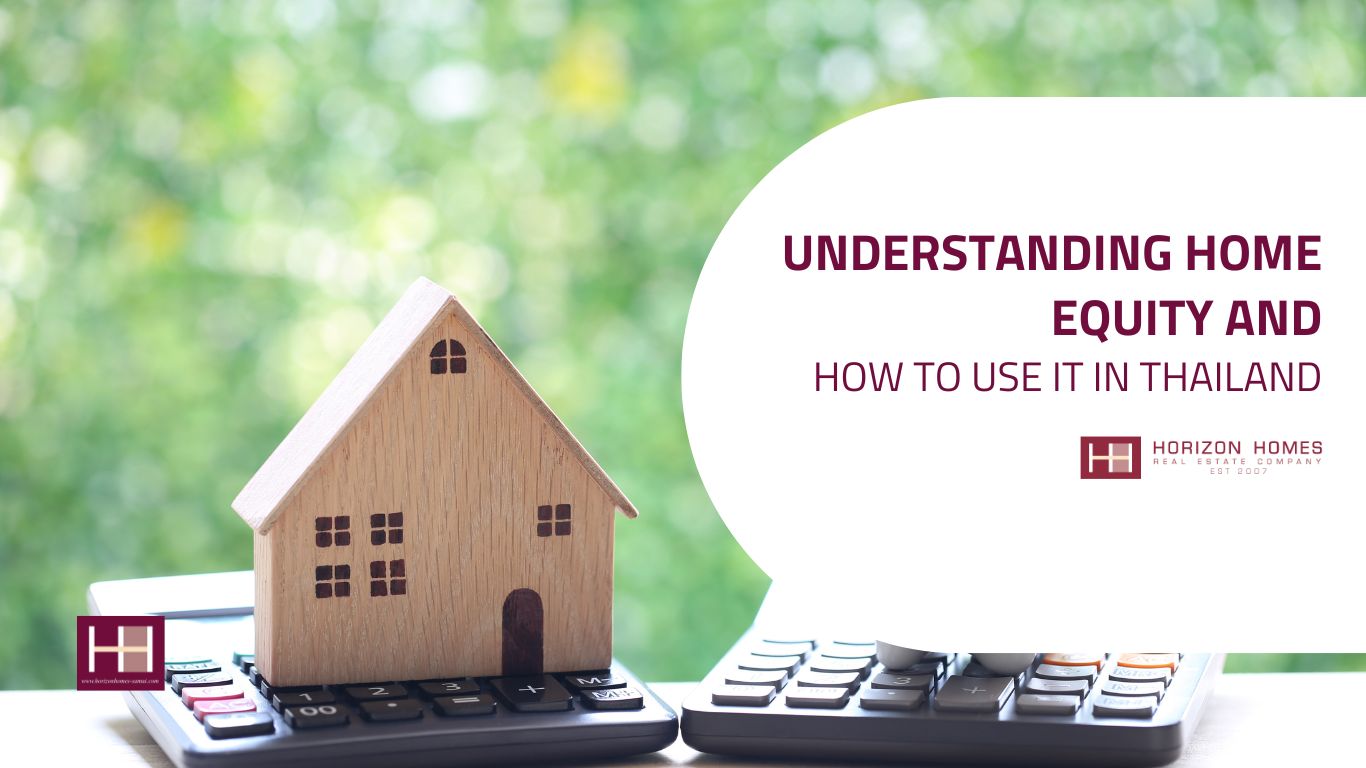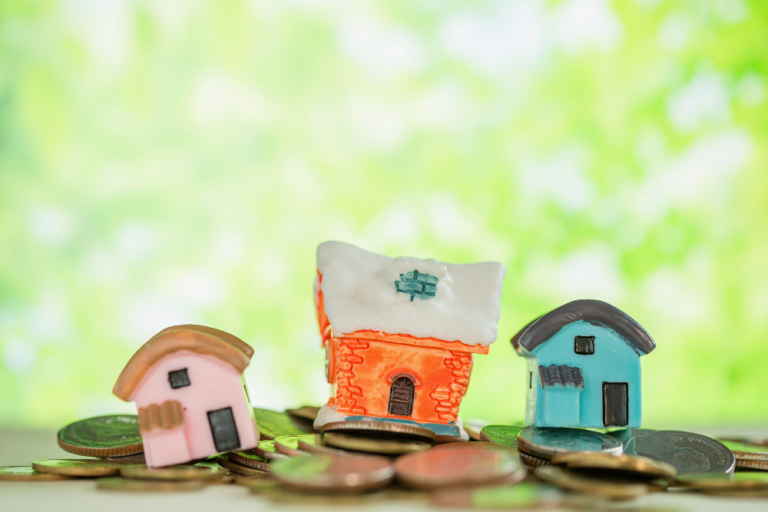Navigating homeownership can feel complex, especially when it comes to understanding home equity. Home equity is simply the portion of your home that you truly own, calculated by subtracting your remaining mortgage balance from the property’s current market value. Over time, as you make mortgage payments and your property appreciates, your equity grows, creating a valuable financial resource.
Unlocking this equity can open up opportunities, such as funding renovations, consolidating debt, or covering major life expenses. With a clear strategy, you can tap into this asset to meet your financial goals without needing to sell your home. However, knowing how home equity works, the options for accessing it, and potential risks are essential for making informed decisions.
What is Home Equity?
Home equity represents the true ownership stake you hold in your home. For instance, if your home’s value is THB 5 million and your mortgage balance is THB 2 million, you have THB 3 million in home equity.
How Does Home Equity Grow?
Home equity increases through:
- Mortgage Payments: Each payment reduces the loan balance, increasing equity.
- Property Appreciation: Market-driven increases in property value also raise your equity. In Thailand, real estate in areas like Bangkok, Phuket, and Chiang Mai has shown consistent growth, which can benefit homeowners looking to build equity over time.
Ways to Access and Use Home Equity
When managed wisely, home equity can be a versatile financial tool. Below are some ways to access it in Thailand:
1. Home Equity Loan
A home equity loan allows you to borrow a lump sum against your equity, often at lower interest rates than unsecured loans. This is ideal for:
- Major Expenses: Such as home renovations or purchasing a vehicle.
- Debt Consolidation: Paying off high-interest debts more cost-effectively.
- Education Costs: Funding tuition or other education-related expenses.
2. Home Equity Line of Credit (HELOC)
A HELOC provides flexible borrowing within a set credit limit. You can draw funds as needed, ideal for:
- Emergency Funds: Quick access to cash for unexpected costs.
- Cash Flow Management: Particularly helpful for small business owners or those with irregular income.
3. Cash-Out Refinancing
This option involves replacing your current mortgage with a new one at a higher amount, allowing you to pocket the difference. It’s useful for leveraging cash at potentially lower interest rates.
4. Reverse Mortgage
While less common in Thailand, reverse mortgages allow retirees to convert their home equity into cash, which can be received in monthly payments, a lump sum, or a line of credit.
Pros and Cons of Leveraging Home Equity
Accessing home equity offers benefits but comes with risks:
Benefits:
- Lower Interest Rates: Home equity loans generally have lower rates than credit cards or personal loans.
- Tax Advantages: Although tax benefits vary by country, some Thai homeowners may find tax savings for certain property uses.
- Flexibility in Use: Funds can be used for various purposes, from investments to lifestyle upgrades.
Drawbacks:
- Risk of Foreclosure: Defaulting on a home equity loan or HELOC could lead to foreclosure.
- Market Risk: A decline in property values can reduce equity, impacting your borrowing capacity.
- Added Debt: Borrowing against your home increases overall debt, which can affect future financial flexibility.
Calculating Your Home Equity
To determine your equity, you need your home’s current market value. You can use online tools or consult an appraiser for a precise estimate. Subtract your mortgage balance from this value to reveal your home equity.
Home Equity = House Worth – Money Still Owed
Home Equity = $400,000 – $200,000
Home Equity = $200,000
How to Choose the Right Option
Choosing the best home equity product depends on your needs, goals, and financial position. Consider your borrowing capacity, repayment ability, and what you plan to achieve with the funds. For instance:
- Long-Term Projects like home renovations might be best suited to a home equity loan.
- Emergency Expenses may call for a HELOC for its flexibility.
- Retirement Needs can benefit from a reverse mortgage, especially if fixed income is limited.
Building Home Equity Faster
Increasing your home equity can be accomplished by paying down your mortgage principal more aggressively or through property improvements. In Thailand, upgrades like energy-efficient windows, new landscaping, or modernizing kitchens and bathrooms can boost your property’s value and, by extension, your equity.
Risks of Using Home Equity
Using your home equity involves risks, such as:
- Potential Foreclosure: Missing payments on loans secured by your home can lead to losing the property.
- Costly Fees: Origination fees, appraisal fees, and closing costs can reduce the actual amount of funds available.
- Market Vulnerability: If property values drop, your equity may decrease, complicating loan repayment.
Conclusion
Understanding and leveraging home equity can provide Thai homeowners with substantial financial opportunities. Whether it’s financing home improvements, managing debt, or pursuing investment opportunities, home equity allows you to tap into a powerful asset without selling your home. However, always weigh the pros and cons and consult financial experts to ensure that you’re making choices aligned with your long-term goals.
If you’re considering home equity options and seeking guidance, Horizon Homes offers comprehensive support for homeowners in Thailand. With in-depth expertise in the local market, Horizon Homes can help you make the most of your property investments and achieve financial flexibility.
FAQs
Home equity is the portion of your home’s value that you truly own, after accounting for your mortgage.
You can access home equity through home equity loans, HELOCs, reverse mortgages, or cash-out refinancing.
Yes, borrowing against equity puts your home at risk if you cannot meet repayment terms.
Factors include mortgage payments, property value fluctuations, and other liens on the home.
Yes, home equity loans impact your credit score, and timely payments are critical for maintaining or improving it.




